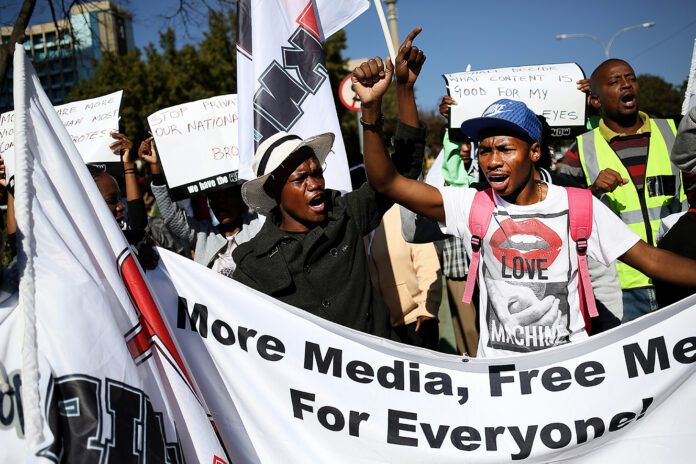The media, as a pillar of democracy, plays a pivotal role against those entrusted with power, and its influence as the fourth estate, over the executive, legislature and judiciary is always under a microscope.
With so much focus on the evolving media landscape since the dawn of democracy in 1994, and with the advent of social media precipitated by Artificial Intelligence (AI), we have on our hands the era of fake news.
Over and above challenges of restructuring and retrenchments, dwindling newsrooms, decline in advertising revenue, circulation and newspapers going digital, it is important as we commemorate Black Wednesday and celebrate Media Freedom Day, to pause and reflect on a plethora of challenges and opportunities facing the media in SA today.
October 19 is an opportune time for the media not only to remember the fateful day in 1977, when the apartheid regime unleashed its might and banned 19 Black Consciousness Movement organisations and The World and Weekend World newspapers, detaining the editor Percy Qoboza at Modderbee Prison for five months under section 10 of the Internal Security Act.
The world condemned the government’s actions, which came barely a year after the Soweto student uprising. Those who witnessed the two events still bear the psychological scars of the brutality of the regime of the day.
Fast forward, South Africa today ranks high on the Press Freedom Index, because of its high culture of investigative journalism, and be thankful that freedom of expression and the media are enshrined in the Constitution, which guarantees that Everyone has the right to freedom of expression, which includes freedom of the press and other media.
As much as there were attempts post-1994 to muzzle the press through a proposed media appeals tribunal, which fell flat on its nose because it couldn’t pass constitutional muster, the media should be vigilant and fight against any threat, internally and externally.
Although the media has proven that it can stand together to fight intrusion from external forces, it should do the same in fighting and flushing out rogue and reckless journalists within its ranks, instead of going on the defensive when legitimate complaints are made against media houses or media practitioners.
A case in point is the allegations made by KwaZulu-Natal police commissioner Lt-Gen Nhlanhla Mkhwanazi of unethical journalists in the pockets of the high and mighty.
The top cop even called for State Security to probe certain journalists, something that riled media organisations such as the South African National Editors’ Forum (Sanef), a lobby group of editors, senior journalists and journalism academics and educators.
Certain trends are permeating the media, including stories littered with editorial and comment in the reportage, especially relating to Mkhwanazi’s testimony before the Madlanga commission and parliamentary ad-hoc committee following his July 6 much-talked-about explosive media briefing.
One of the troubling challenges facing the media is a lack of organised labour. Why are the majority of the current crop of journalists not part of unions? What happened to the Media Workers’ Association of South Africa is painfully sad, as is the case with the Communication Workers’ Union and the Broadcast & Electronic Media Workers’ Union.
The media ecosystem can do better when journalists adhere to journalism ethics guiding the craft instead of going on the defensive when asked to account.
Are journalists beyond reproach?
Shouldn’t journalists or the media be held to account? Are journalists beyond scrutiny?
The media is not immune to internal threats, as it has been proven over and over again that the craft is littered with charlatans with zero ethics, masquerading as journalists.
Brown envelope journalism is very much with us, as are embedded journalists and praise-singers and those in the pockets of the high and mighty. It’s the industry’s duty to expose, isolate and flush out rogue journalists.
While some think that the slow death of print is the demise of journalism, I beg to differ. Journalism is evolving, despite media practitioners being expected to do more with less. But that’s no excuse to cut corners and endanger our hard-won media freedom.
Therefore, it is incumbent upon the media to reflect and introspect instead of deflecting and denying that there are systemic challenges facing the Fourth Estate. The media have rights and responsibilities too.
• Sepotokele is a journalist, media trainer and journalism lecturer. He, is the author of Being A Spokesperson



